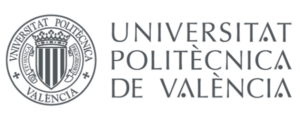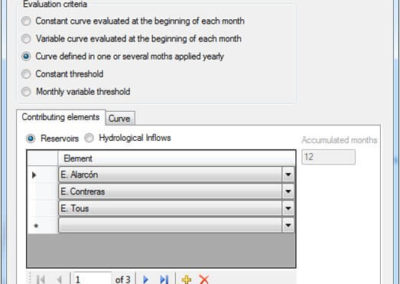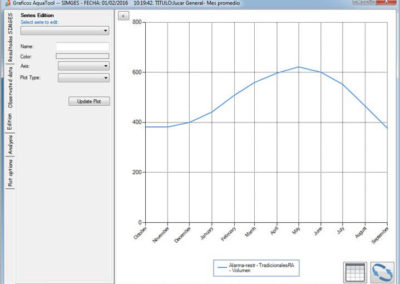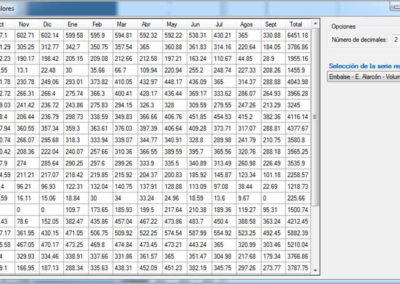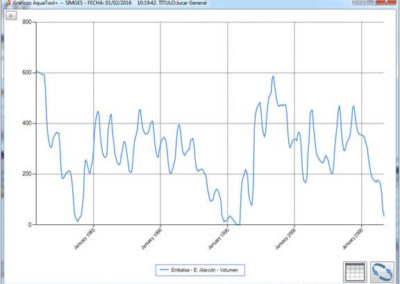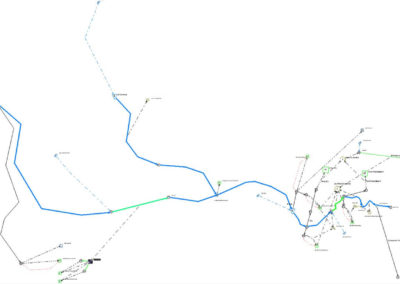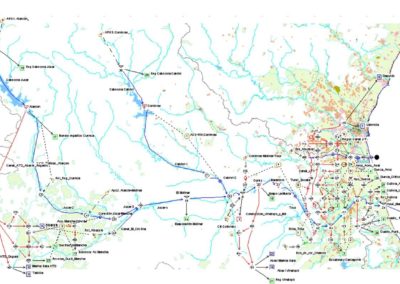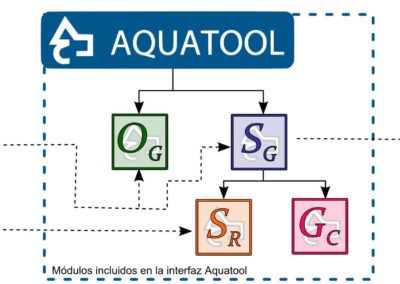AQUATOOL
Decision support system for the planning and management of water resources
Description
AQUATOOL is an environment for the decision support system (DSS) development for watershed and water resource planning and management. As a DSS, it provides resources to assist in the analysis of various problems related to water management.
In addition, AQUATOOL is a line of research in continuous development. In addition to the well known watershed management analysis tools, it also provides other tools that facilitate the development of related work. These tools can be general application modules that in the future will be available here, or specific developments required by a client that are not generalizable.
AQUATOOL is a software for the design and development of decision support systems for technicians responsible for the planning and management of water resource systems. It allows, among other things, to design and graphically introduce the configuration of a water resource system and their associated databases (physical characteristics, management conditions) for their subsequent optimization and simulation. It also allows to select the management alternatives and to design the operation criteria using the optimization module, as well as to perform management simulations for different alternatives and time horizons using the simulation model. It is possible to also use the simulation model as a support tool for distributing resources between conflicting demands and to study the impacts of potential changes in the system. Finally, there is a module for the simulation of water quality in river sections and reservoirs, which allows simulating water quality in complex systems. The advantage of all models included in AQUATOOL is that it is a tool for modeling without being limited to a specific case.
Characteristics
The capacities of the different modules can be used in a water resource system, such as filtering design or management alternatives through the GESCAL module that simulates water quality in complex natural systems. This module allows modeling water temperature, arbitrary contaminants, organic matter, dissolved oxygen, the nitrogen cycle, phytoplankton and the phosphorus cycle. It is based on a mechanistic model for river sections and reservoirs. With this module, besides being able to model the quality in water bodies in a particular way, the influence of the management in the quality of the water in systems of water resources can be analyzed.
These modules are integrated in a unique system in which the user control unit allows the graphic definition of the system diagram, control of the databases, the use of the mentioned modules and the graphic analysis of the optimization results, thus obtaining operating criteria from the analysis of the optimal results.
In addition, they allow to check and refine the filtered alternatives through the use of the simulation module and carry out sensitivity analysis comparing the results after changes in the design or operating rules.
It is also possible to carry out risk analysis simulating and/or optimizing with different hydrological synthetic sites (Monte-Carlo analysis). Another quality of the software is that it provides knowledge of the system in the physical, managerial and data organization aspects.
It is also possible to use a particular module once an alternative is implemented as an aid in the operation of the water resources system (off-line), mainly for the distribution of resources between conflicting demands, and to study impacts of changes in the system. Another option is to use the control unit itself for the georeferenced location of the schematic elements, the transfer of data between the simulation and optimization modules, as well as for the export of graphic information for processing.

